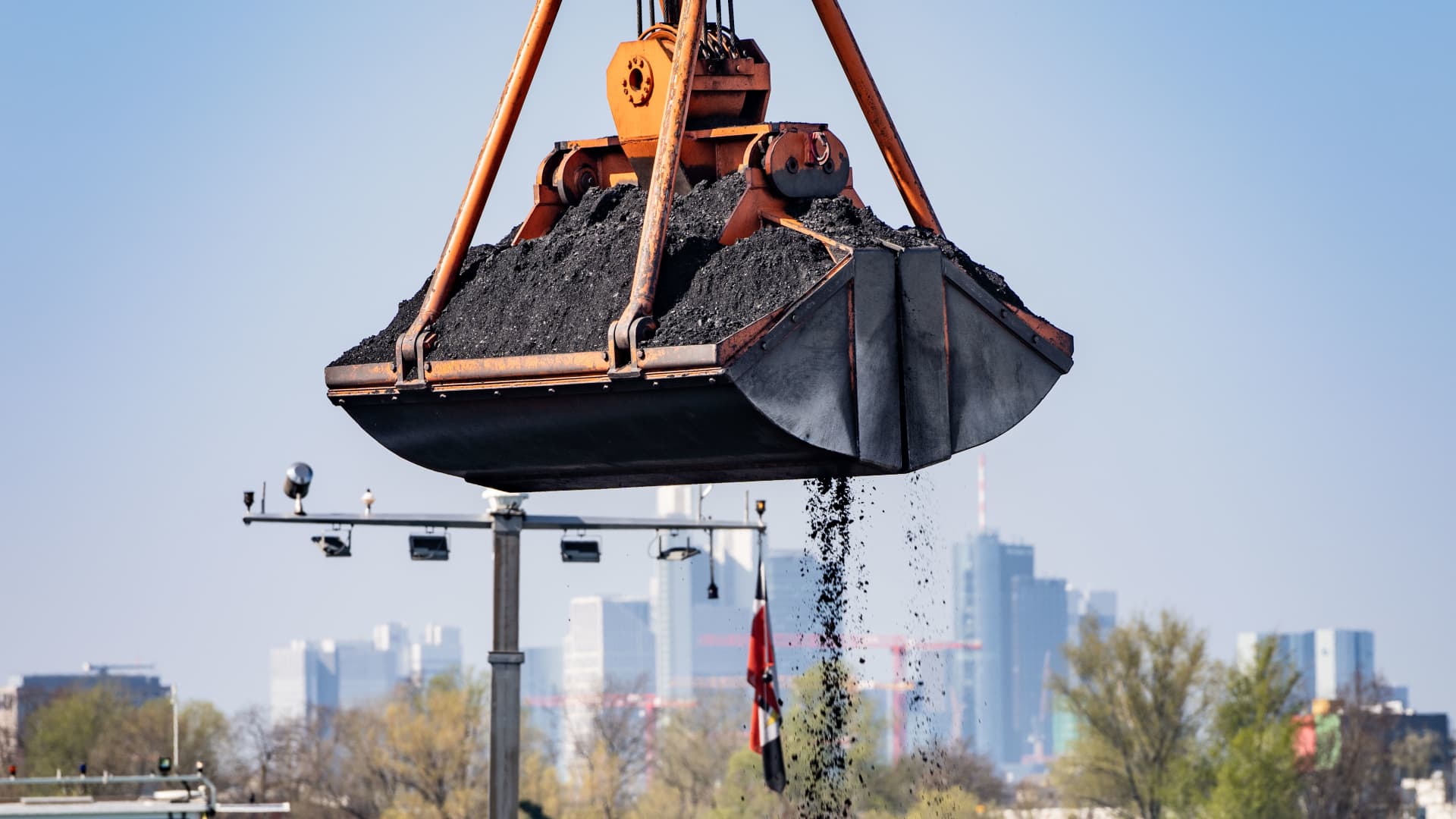EU proposes ban on Russian coal, working on oil sanctions

French President Emmanuel Macron has called for the EU to ban Russian coal as part of a wave of new sanctions to further isolate the Kremlin.
Frank Rumpenhorst | Picture Alliance | Getty Images
LUXEMBOURG — The European Commission on Tuesday proposed banning Russian coal as part of a new round of sanctions against the Kremlin for its unprovoked invasion of Ukraine.
“We will impose an import ban on coal from Russia, worth 4 billion euros ($4.39 billion) per year. This will cut another important revenue source for Russia,” European Commission President Ursula von der Leyen announced on Tuesday afternoon, confirming an earlier report from CNBC.
It marks another significant escalation in punitive measures against the Kremlin. Imposing sanctions on the Russian energy sector has been a challenge for the bloc given the high level of dependency that some member states have on the country’s resources.
According to data from the European statistics office, the EU imported 19.3% of its coal from Russia in 2020. It imported 36.5% of its oil from the country in the same year, and 41.1% of its natural gas. However, mounting evidence of war crimes committed by Russian forces in Ukraine has pushed the commission to propose that coal be added to a fifth package of sanctions against Moscow.
“These atrocities can not and will not be left unanswered. The perpetrators of these heinous crimes must not go unpunished,” von der Leyen said.
She added: “Clearly, in view of events, we need to increase our pressure further.”
The new set of measures will be discussed by European ambassadors on Wednesday. Final approval of the sanctions won’t happen until after the talks.
The new set of sanctions also includes a full transaction ban on four critical Russian banks, among them VTB; a ban on Russian vessels and Russian-operated vessels from accessing EU ports; and targeted export bans worth 10 billion euros that involve quantum computers and advanced semiconductors.
Russian oil in the works too
There has been growing pressure on Europe to target the Russian energy sector, particularly as energy-importing countries continue to top up President Vladimir Putin‘s war chest with oil and gas revenue on a daily basis.
However, the issue divides the EU, with some nations supportive of banning Russian energy imports, while others contend that such a move would hurt their own economies more than Russia’s.
France’s president, Emmanuel Macron, for instance, said Monday that the bloc should go ahead with sanctions against Russian oil too in the wake of the reports of atrocities in towns close to Ukraine’s capital of Kyiv.
Von der Leyen also said Tuesday: “We are working on additional sanctions, including on oil imports, and we are reflecting on some of the ideas presented by the member states, such as taxes or specific payment channels such as an escrow account.”
These measures, however, would only be triggered at a later stage, if the war in Ukraine escalates further.
Germany’s Foreign Affairs Minister Annalena Baerbock said Tuesday that the EU will soon end its purchases of Russian fossil fuels altogether, starting with coal.
“The answer to these war crimes now with the fifth sanctions package at the European level must be that we, as a European Union, must completely phase out fossil energy dependence on Russia, starting with coal, then oil, and then gas,” she said, according to Reuters.
Ending supplies of Russian gas would be the most challenging decision for the EU. Germany has been reluctant to do it, but so too have nations such as Hungary and Austria.
“We want to be, [in the] short time, less dependent on Russian energy imports to the European Union and Germany will support further sanctions on Russia,” German Finance Minister Christian Lindner told CNBC in Luxembourg on Monday.
“We have to put more pressure on Putin and we have to isolate Russia — we have to cut all economic relationships to Russia, but at the moment it is not possible to cut the gas supplies.”
